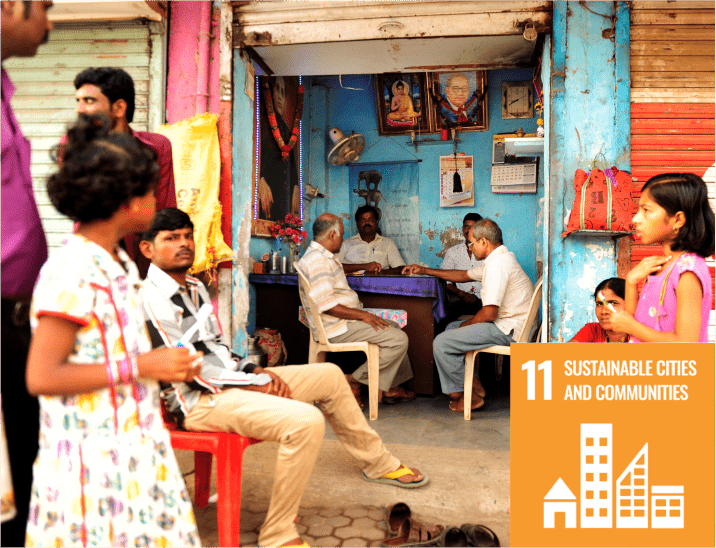SDG Goal 11 – Sustainable Cities and Communities

Stigma stemming from concepts of purity and pollution and the consequent practices of untouchability lead to discrimination and physical and social distancing. Untouchable people are forced to live at a distance. With little influence on the levers of power, the settlements they live in do not have the same extent of civic amenities as the other well-off, non-untouchable sections have access to. Here begins the litany of sorry lives of communities discriminated on work and descent (CDWD).
Prejudice and discrimination against Senegal’s Neeno community has led them to having reduced access to housing. They find it difficult to reside in places occupied by members of the other communities.
Dalits in India find it extremely difficult to even rent a house. Paradoxically, their homes are demolished to make way for cities to expand. For example, the urban poor, most of whom were scheduled castes were forcefully evicted to make way to showcase a beautiful city hosting the Commonwealth Games New Delhi in 2010.
It is common to find Dalits living in lower quality housing, made with inadequate materials compared to others.
In Yemen, 95 per cent of Al-Akhdams have no official ownership of the land they live on, in isolated pockets away from the rest of the population. They hardly have any access to basic facilities like electricity, water supply and sanitation services.

